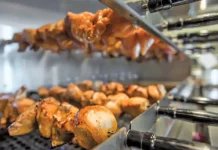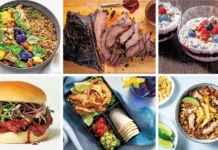
What You Need to Know to Avoid Liability
Article by Lance E. Rothenberg, Esq., LL.M (Taxation), Tenenbaum Law P.C.
Sales and use taxes apply to most purchase and sale transactions conducted by a restaurant. However, certain transactions are tax exempt at restaurants. Understanding when an exemption applies and how to document that exemption, through the proper use of an “exemption certificate,” is a necessary piece of the sales tax puzzle.
Restaurant operators, like operators of all sales tax businesses, need to understand how and when to accept exemption certificates from their customers and how and when to issue exemption certificates to their vendors and suppliers. Improper use of a certificate can lead to an unexpected sales tax liability after-the-fact. Sales tax audits are often difficult, and sales taxes can carry personal liability for owners, operators, and even investors. So, the stakes are high.
Let’s take a brief look at New York’s sales tax exemption certificate rules, and the consequences for failing to live up to them.
A. Exemption Certificates – What are They?
Sales tax exemption certificates enable a purchaser to make tax-free purchases that would otherwise be subject to tax. Stated another way, a properly completed certificate can qualify as an “audit-proof” defense that a given transaction was exempt from taxation. The purchaser fills out the certificate, setting forth a basis for the exemption, and provides it to the seller. The seller keeps the certificate and may then complete the sale without charging and collecting the tax.
There are various reasons why a particular transaction may qualify as exempt. Within the restaurant industry, for example, certain items may be purchased tax-free if they are purchased for re-sale or for an exempt use. Making those determinations can be tricky. Alternatively, your customer may be a tax-exempt entity (a non-profit or a government agency). Documenting those transactions can also be difficult. If mistakes are made, an auditor may ultimately issue a bill for the tax that wasn’t collected.
Let’s look at an example. A restaurant needs to purchase certain taxable items from a supplier. In this instance, let’s assume the items will be resold by the restaurant (for example, alcohol) so they qualify as tax-free. Since most restaurant purchases are normally subject to tax, the supplier needs some record to show why it didn’t collect tax on the sale, otherwise it could be liable for the tax. Accordingly, the restaurant can issue a resale exemption certificate to the supplier certifying that the items will be resold. Provided the certificate is properly filled out and given to the supplier within 90 days of the purchase, the supplier does not need to charge tax on the sale to the restaurant.
B. Restaurant Tax Exemption Sales Certificates – How to Use Them
Exemption certificates must be properly completed to be effective. First, there are many different types of exemptions, so you must be sure you are utilizing the correct certificate. Second, the certificate must be fully and properly completed and signed by the purchaser. This means, the purchaser must list the date, name, address, and identifying numbers of the purchaser and seller. Third, the certificate must be given to the seller within 90 days of the transaction or it may be treated as invalid as untimely. It’s very common for an auditor to review and challenge incomplete or incorrect certificates. If the certificate is faulty, then the basis for the exemption may be incorrect or unsupported. That means that the auditor may determine more tax is due.
C. Exempt Purchases – Issuing Exemption Certificates
Restaurants are continually making purchases from various suppliers. Many of these transactions are taxable, but some are non-taxable, and some are exempt and require the use of an exemption certificate. Determining which category applies can be tricky.
- Food & Food Products. Most purchases of food and food products are non-taxable and exemption certificates are not required.[1] Certain foods, however, such as candy, soda, bottled water, soft drinks, cocktail mixers, and alcoholic beverages are taxable. When these items will be resold to customers, the restaurant can purchase them tax-free under a resale exemption certificate issued to the supplier.[2] Each state has its own specific exemption certificates. In New York, the resale certificate is Form ST-120. For comparison, in New Jersey, this is Form ST-3.
- Disposable Products & Supplies. Most non-food purchases by restaurants are subject to tax at the time of purchase. However, some supplies are, in fact, considered to be resold to the customer, and therefore can be purchased by the restaurant under an exemption certificate. In New York, disposable paper products that are given to the customer to hold or contain carry-out food are “critical elements” of the meal and are therefore treated as if they are resold to the customer. This includes carry-out bags, pizza boxes, French fry sleeves, Styrofoam containers, cups, lids, disposable plates, and food wrappers.[3] As such, rather than pay tax to the supplier, restaurants can issue a resale certificate.
However, napkins, spoons, knives, forks, straws, coffee stirrers and other similar disposable items are taxable and an exemption certificate may not be used. As the thinking goes, a cup of coffee cannot be purchased without the cup, but the same cannot be said of the coffee stirrer or a napkin.[4] As you can see, these rules are technical, not altogether intuitive, and were the subject of much litigation. Accordingly, gaining an understanding of which items qualify for exemption and developing internal practices and procedures to properly account for these items is an important aspect of proper sales tax compliance.

D. Tax Exempt Restaurant Sales – Accepting Exemption Certificates
Now let’s take a look at sales. The sale of a restaurant meal is taxable, and the restaurant must charge and collect tax. Sometimes, though, a customer is a non-profit or other exempt entity. Where a non-profit is properly registered with the state, it can qualify for exemption from sales tax for its purchases, including a meal from your restaurant.
Meals purchased by a representative of an exempt organization are exempt when two criteria are met. First, the meal must be paid for directly from organization funds; for example, an organizational credit card or check. If the representative pays for the meal personally, even with the intention of seeking reimbursement, the meal remains taxable. Second, the representative must provide the restaurant with a copy of its exempt organization certificate. In New York this is Form ST-119. Again, for comparison, in New Jersey, this is Form ST-5.
Similarly, if your customer is a representative of a government agency, in addition to paying with government funds, a copy of a government purchase order, contract or official letterhead should be obtained in order to document the exemption.
If tax is not collected from the customer, but improper documentation is obtained, an auditor could retroactively impose tax on that transaction and issue you a bill.
E. Other Pointers
As you can see, sales and use tax rules are complicated, and it is easy to make mistakes. Before we close, let’s talk about a few other common issues that come up when dealing with exemption certificates. First, all fields in the exemption certificate must be completed. Businesses often have a certificate on file, but it’s often the wrong form or it’s not complete or it’s unsigned or it’s undated. These errors can be fatal to supporting the exemption.
Second, exemption certificates must be accepted by the seller in good faith. This means the seller has no prior knowledge that the certificate was false or fraudulent. Misuse of exemption certificates, or fraudulently issuing them with the intent to evade tax, can result in penalties, fines, and even criminal sanctions.
Third, companies must exercise reasonable business sense before issuing or accepting exemption certificates. Sellers could be held liable for the tax that they should have collected if an auditor later examines the transaction and determines the certificate is incomplete.
Lastly, sales taxes (like payroll taxes) are trust fund taxes. Owners, operators, and even investors can be held personally liable for trust fund tax debts of the business. So, the stakes are high.
If you are reviewing your company’s use of exemption certificates, or if you are facing a tax audit or dispute, you can email me at lrothenberg@litaxattorney.com.
Disclaimer: The information contained in this article does not constitute tax advice and is for informational purposes only.
 Lance E. Rothenberg is a tax attorney and is Of Counsel with Tenenbaum Law P.C., which is based in Melville, N.Y. Lance focuses on state and federal tax controversies and disputes, and has experience assisting a wide range of businesses and business owners facing federal, state, local, and multistate tax issues, including sales-and-use taxes, corporate income taxes, personal income taxes and excise taxes. You can reach him at lrothenberg@litaxattorney.com and at (631) 465-5000.
Lance E. Rothenberg is a tax attorney and is Of Counsel with Tenenbaum Law P.C., which is based in Melville, N.Y. Lance focuses on state and federal tax controversies and disputes, and has experience assisting a wide range of businesses and business owners facing federal, state, local, and multistate tax issues, including sales-and-use taxes, corporate income taxes, personal income taxes and excise taxes. You can reach him at lrothenberg@litaxattorney.com and at (631) 465-5000.
- [1] See NYS Publication 750, A Guide to Sales Tax in New York State (11/2015).
- [2] See NY Tax Bulletin, TB-ST-695, Purchases by Restaurants, Taverns, and Similar Establishments (4/2013).
- [3] See 20 N.Y.C.R.R. 528.20(d).
- [4] See Celestial Food of Massapequa Corp. v. New York, 63 N.Y.2d 1020 (1984).
























Comments are closed.